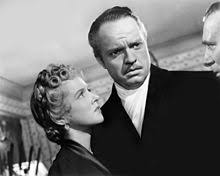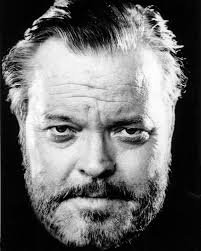
Image courtesy: Wikpedia
Citizen Kane's Rosebud
“The Mystery of ‘Rosebud’ in Citizen Kane” explores the profound impact of this enigmatic word on the narrative of the film. Directed by Orson Welles and hailed as a cinematic masterpiece, Citizen Kane delves into the life of Charles Foster Kane, a wealthy newspaper magnate, and his ultimate downfall. At the heart of the film lies the recurring motif of “Rosebud,” a mystery that captivates both the characters and the audience.
From the very beginning, “Rosebud” is established as a crucial element in unraveling the enigma of Charles Foster Kane. The film opens with Kane’s final moments on his deathbed, where he utters the word “Rosebud” before passing away. This sets the stage for a journalist’s quest to uncover the meaning behind this cryptic utterance.
As the journalist interviews individuals who were acquainted with Kane, fragments of his life emerge, shedding light on the significance of “Rosebud.” Eventually, it is revealed that “Rosebud” was the name of Kane’s childhood sled, a cherished possession that symbolized his lost innocence and happiness.
However, the symbolism of “Rosebud” extends far beyond a mere childhood memory. The sled represents Kane’s yearning for a simpler time in his life, before the allure of wealth and power consumed him. It embodies his longing for the love and warmth he experienced as a child, which gradually slipped away as he pursued his ambitious endeavors.
Moreover, the sled serves as a metaphor for the fleeting nature of happiness and the impermanence of material possessions. Despite Kane’s vast wealth and possessions, he ultimately dies alone and unfulfilled. “Rosebud” becomes a poignant reminder of the hollowness and isolation that can accompany a life driven solely by ambition and wealth.
The significance of “Rosebud” in the film lies in its role as a narrative device that propels the story forward and provides profound insight into Kane’s character. It prompts the journalist to delve deeper into Kane’s life, unearthing the truth behind his rise to power and subsequent downfall. Through the exploration of “Rosebud,” Citizen Kane invites viewers to reflect on the complexities of human existence and the consequences of unchecked ambition.

Image courtesy: IMDb
The man who created the master piece is Orson Welles, born on May 6, 1915, was a multifaceted American figure in the entertainment industry, excelling as an actor, director, writer, and producer. Renowned as one of the most exceptional filmmakers in cinematic history, Welles’ contributions have left an enduring impact on the art form.
Early in his career, Welles garnered attention for his inventive theatrical productions, notably his 1937 rendition of William Shakespeare’s “Julius Caesar.” His modern approach to staging and unique interpretation of classic works captivated audiences and critics alike.
In 1941, Welles made a significant mark in the film world with his groundbreaking debut, “Citizen Kane.” This film, which he directed, co-wrote, and starred in, is often hailed as a masterpiece, revolutionizing filmmaking with its non-linear narrative and innovative cinematography.
Despite facing challenges later in his career, including struggles with funding and compromises to his artistic vision, Welles continued to produce notable works such as “The Magnificent Ambersons” (1942) and “Touch of Evil” (1958).
Welles’ influence on the film industry is profound, with his pioneering use of deep focus, low-angle shots, and long takes inspiring generations of filmmakers. His innovative storytelling techniques remain a source of inspiration for artists today.
Throughout his career, Orson Welles received numerous awards, including an Academy Award for Best Original Screenplay for “Citizen Kane.” In 1975, he was honored with the American Film Institute’s Lifetime Achievement Award for his significant contributions to cinema.
Despite the challenges he faced, Orson Welles’ legacy in the world of film endures. His bold storytelling and innovative techniques continue to be revered and studied by filmmakers and film enthusiasts worldwide.
F A Q's
Orson Welles known for making his first film “Citizen Kane” is probably the greatest film ever made.
Orson Welles exiled himself to Europe in 1948 for Hollywood interference in his filmmaking business.
Orson Welles was only 25 years old when he Made the film Citizen Kane.
Orson Welles movies weren’t commercial successes including “Citizen Kane” and because of which his Production house failed.
The character ‘Citizen Kane’ is based on American Publications owner William Randolph Hearst.
